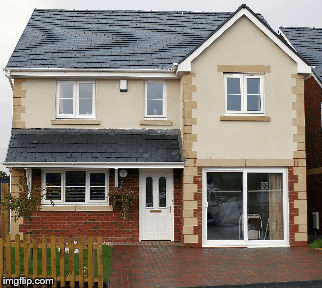A few of us at Shelter are feeling nostalgic for the (early) 1980s today, given our new research that shows if government investment in housing had remained at the same level it was in the early ‘80s, we’d have almost one million more homes than we do today.
Investment in house building wasn’t the only fashionable thing in the ‘80s: among shoulder pads, perms and spandex, the mullet was also popular. And, surprisingly, mullets and homes have more in common than you’d think.
So why are homes like mullets?
1. Lots of people were getting them in the 80s
When I say getting, I mean buying. Back in the 80s there was an expectation that if you worked hard enough, you’d eventually be able to purchase your own home. There was also an assumption that council housing would be available for those who needed them.
Unfortunately, this is no longer the case because…
2. They’re more expensive now than they were in the 80s
Just like these mullets, homes are increasingly only available to people on high salaries.
House prices have risen because for years, governments haven’t built enough affordable homes to buy, or social homes to rent, and there is huge unmet demand. Many people are now stuck in an increasingly expensive private-rented sector, where sneaky landlords and poor conditions are sadly par for the course.
If we want housing to become more affordable, the government must invest in it.
3. Business up front, party in the back
… That one’s self-explanatory.
Ok, I admit that’s probably the end of the similarities between mullets and homes. But the 80s nostalgia is legitimate: if we’d kept building houses at the rate we did in the ‘80s, our housing market would look very different today.
If this government fails to invest in housing, truly affordable homes could end up – like mullets – banished to the confines of recent history, laughable in today’s context, and leaving you wondering quite how anyone could ever get one.






